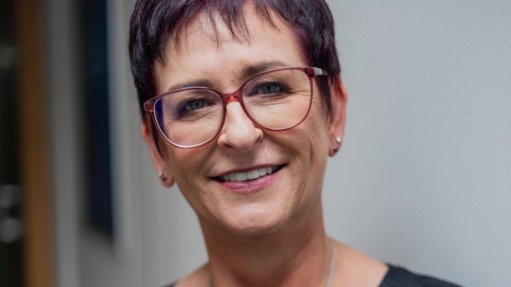Tribute to Hammarskjöld
Just over six decades ago, former United Nations (UN) secretary-general Dag Hammarskjold died in mysterious circumstances in what is now Zambia. Some cried assassination, with more than a couple of accusing fingers pointed at the South African government of the time – and others.
As I read a piece about the sixtieth anniversary of the death, on September 18, 1961, of the Swedish-born international civil servant, memories of what I have learnt about him over the years flooded back. One is that he was a remarkable human being, with John F Kennedy, the late former President of the US, having described him as “the greatest statesman of our century”. Even the suits who decide who gets the Nobel Peace Prize agreed with this assessment, posthumously naming him as a laureate. Only three other people have won the Nobel Peace Prize after their death.
His other claim to fame, especially on this continent, was his commitment to decolonisation and the values of the UN Charter. Indeed, he died when his plane crashed in the African bush while he was en route to what is now the Democratic Republic of Congo (DRC). He was on a mission to negotiate a ceasefire with secessionists in the DRC’s Katanga region and, ultimately, prevent the disintegration of the newly independent country.
Doubts have been expressed about whether the plane crash, near the mining town of Ndola and in which 15 other people perished, was the result of human error. While the findings of a UN probe were inconclusive, an investigation conducted a few years ago by a former Tanzanian Chief Justice concluded that the plane may have been attacked and that four nations – Britain, Russia, the US and South Africa – may be withholding information that could help solve the mystery of HammarskjÖld’s demise.
The Swede’s death is oft-recounted in journalism schools as academics impress upon budding hacks the imperative to always perform what they call the craft’s “ritual enactments” when they go about their work. One of these is to ensure that, in all circumstances, one gets one’s “facts” from the right sources before putting pen to paper. On that fateful September night, the world’s major media organisations had dispatched correspondents to Ndola Airport to confirm that HammarskjÖld had landed and that he would be proceeding to Katanga.
A plane indeed landed but it was difficult in the dark night to make out who was disembarking. So, the gathered journos asked a police officer if that was the UN team. Yes, came the answer. Trouble was, those alighting were not HammarskjÖld and his entourage. The newsmen (and presumably newswomen as well) then proceeded to file their stories, after which they – bar a correspondent from Reuters – went drinking at a nearby hotel. Sooner or later, news of the discovery of the UN plane, engulfed in an inferno, reached the hotel and the journos rushed to send corrections to their earlier dispatches. But the hapless Reuters man was oblivious to all this and, across the globe the following morning, newspapers that subscribed to the news agency screamed that the UN head had reached his destination and was due to start negotiations with those behind the Katanga secession attempt.
What I’ve also picked up is that he was a darling with journalists, unlike today’s politicians, who are too grand to speak to lowly hacks, mostly delegating this task to spokespeople. The many quotes from old news reports attributed to him bear testimony to this. A favourite of mine, which speaks to the merit of focusing on the big picture, is this: “Never look down to test the ground before taking your next step; only he who keeps his eyes fixed on the far horizon will find the right road.”
Article Enquiry
Email Article
Save Article
Feedback
To advertise email advertising@creamermedia.co.za or click here
Comments
Announcements
What's On
Subscribe to improve your user experience...
Option 1 (equivalent of R125 a month):
Receive a weekly copy of Creamer Media's Engineering News & Mining Weekly magazine
(print copy for those in South Africa and e-magazine for those outside of South Africa)
Receive daily email newsletters
Access to full search results
Access archive of magazine back copies
Access to Projects in Progress
Access to ONE Research Report of your choice in PDF format
Option 2 (equivalent of R375 a month):
All benefits from Option 1
PLUS
Access to Creamer Media's Research Channel Africa for ALL Research Reports, in PDF format, on various industrial and mining sectors
including Electricity; Water; Energy Transition; Hydrogen; Roads, Rail and Ports; Coal; Gold; Platinum; Battery Metals; etc.
Already a subscriber?
Forgotten your password?
Receive weekly copy of Creamer Media's Engineering News & Mining Weekly magazine (print copy for those in South Africa and e-magazine for those outside of South Africa)
➕
Recieve daily email newsletters
➕
Access to full search results
➕
Access archive of magazine back copies
➕
Access to Projects in Progress
➕
Access to ONE Research Report of your choice in PDF format
RESEARCH CHANNEL AFRICA
R4500 (equivalent of R375 a month)
SUBSCRIBEAll benefits from Option 1
➕
Access to Creamer Media's Research Channel Africa for ALL Research Reports on various industrial and mining sectors, in PDF format, including on:
Electricity
➕
Water
➕
Energy Transition
➕
Hydrogen
➕
Roads, Rail and Ports
➕
Coal
➕
Gold
➕
Platinum
➕
Battery Metals
➕
etc.
Receive all benefits from Option 1 or Option 2 delivered to numerous people at your company
➕
Multiple User names and Passwords for simultaneous log-ins
➕
Intranet integration access to all in your organisation

















